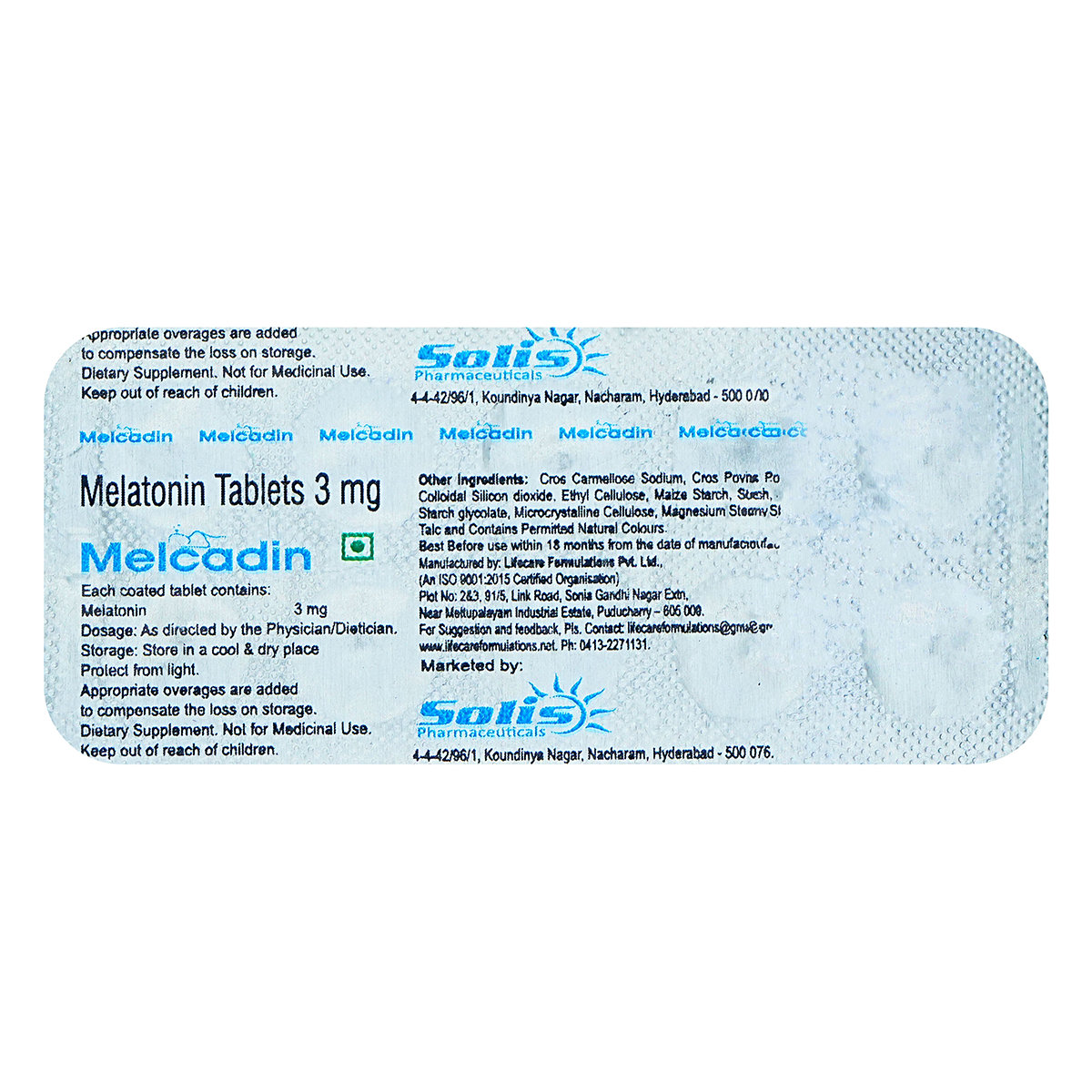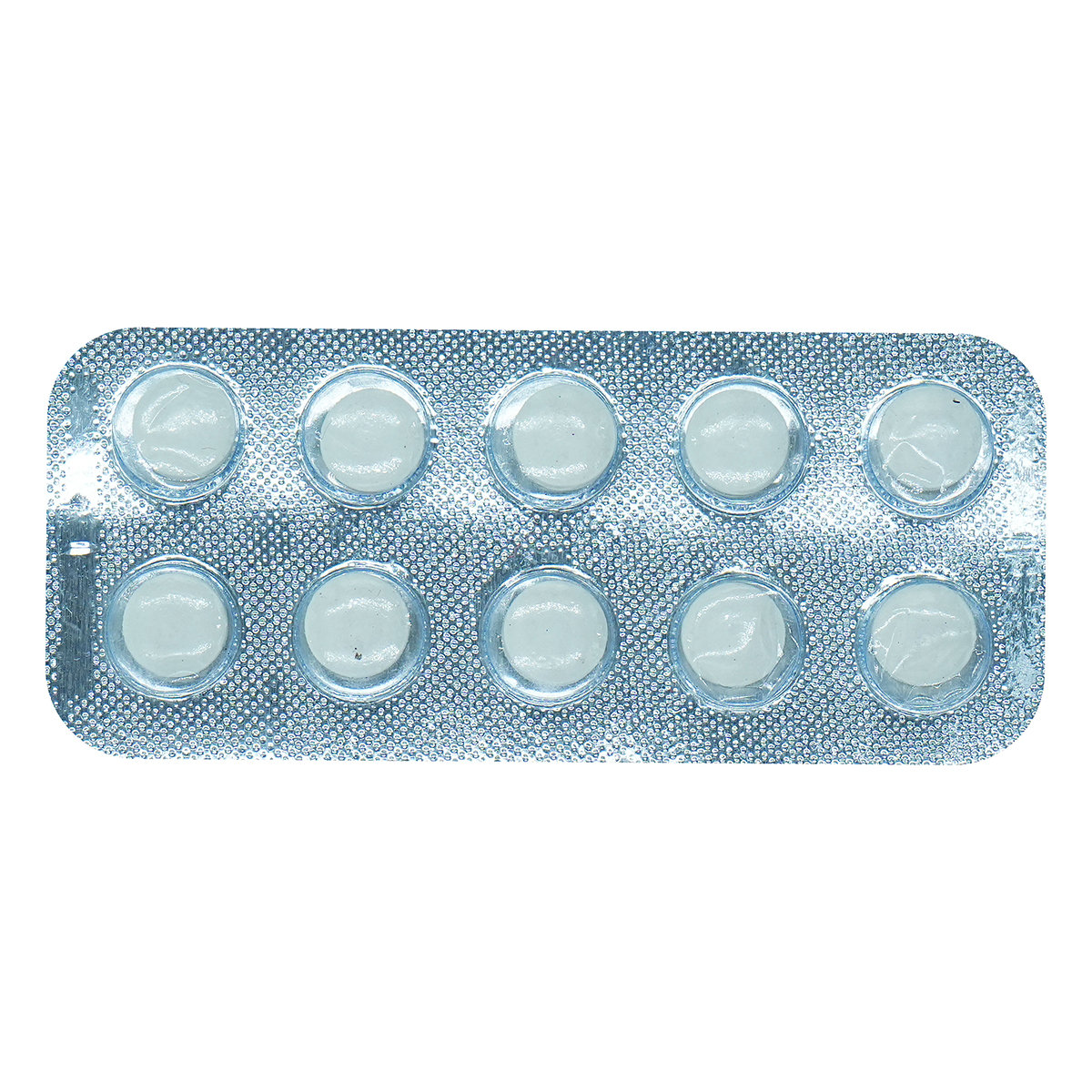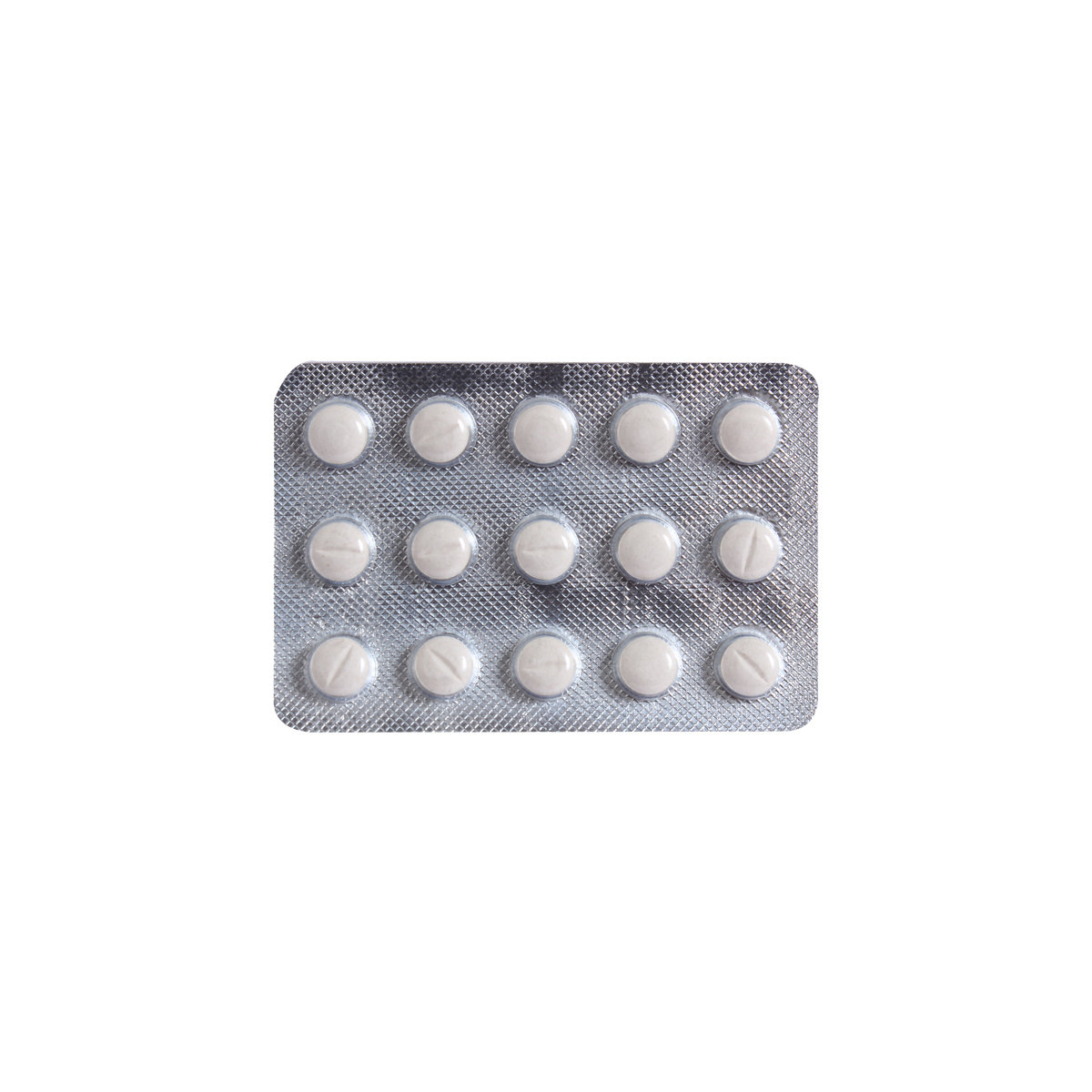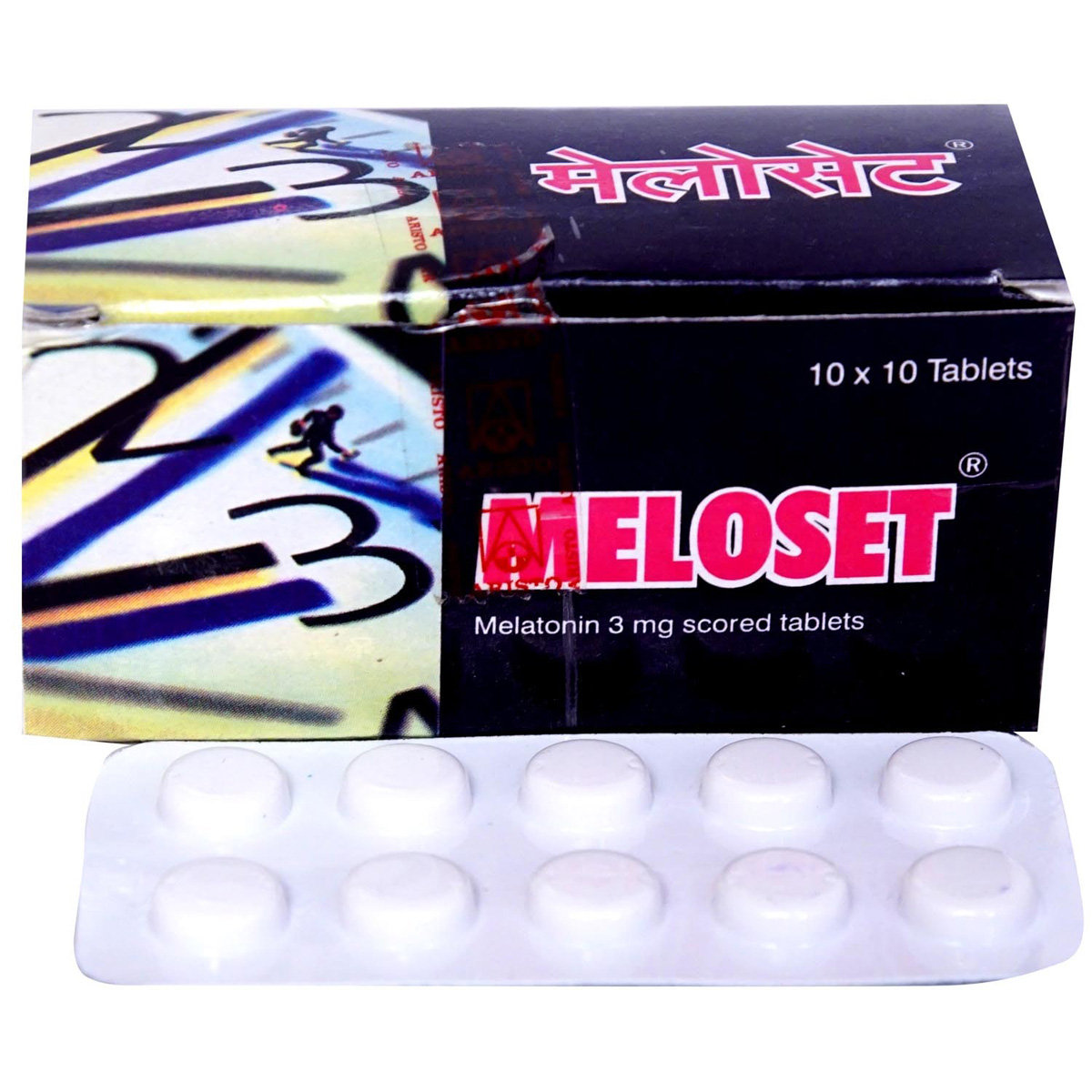Melcadin 3 mg Tablet 10's
MRP ₹48.5
(Inclusive of all Taxes)
₹7.3 Cashback (15%)
Provide Delivery Location
Online payment accepted
 Prescription drug
Prescription drugWhats That
Composition :
Manufacturer/Marketer :
Consume Type :
Expires on or after :
Return Policy :
About Melcadin 3 mg Tablet
Melcadin 3 mg Tablet is a hormone that helps control sleep patterns. Melcadin 3 mg Tablet is used to treat jet lag and insomnia (sleep disorders). Jet lag is a sleep disorder that occurs in people who travel across multiple time zones. Insomnia is a sleep disorder which causes trouble falling and/or staying asleep.
Melcadin 3 mg Tablet contains ‘Melatonin’ that synchronises the body’s biological day-and-night rhythm. Melcadin 3 mg Tablet acts on the receptors in the body, thereby controlling the circadian rhythm and increasing the propensity to sleep.
You are advised to take Melcadin 3 mg Tablet for as long as your doctor has prescribed it for you, depending on your medical condition. In some cases, Melcadin 3 mg Tablet may cause common side effects such as dizziness, drowsiness, headache, and nausea. Most of these side effects do not require medical attention and will resolve gradually over time. However, you are advised to talk to your doctor if you experience these side effects persistently.
Consult your doctor if you are pregnant. Do not take Melcadin 3 mg Tablet if you are breastfeeding as it passes into breastmilk. Do not drive or operate machinery as Melcadin 3 mg Tablet may cause drowsiness and dizziness. Avoid consuming alcohol with Melcadin 3 mg Tablet as it could lead to increased drowsiness and dizziness. Keep your doctor informed about your health condition and medicines to rule out any side effects.
Uses of Melcadin 3 mg Tablet
Directions for Use
Key Benefits
Melcadin 3 mg Tablet is a hormone that helps control sleep patterns. Melcadin 3 mg Tablet is used to treat jet lag and insomnia (sleep disorders) in people over 55 years. Melcadin 3 mg Tablet acts on the receptors in the body, thereby controlling the circadian rhythm and increasing the propensity to sleep. Melcadin 3 mg Tablet adds to the body’s natural supply of the hormone, helps you get to sleep, and improves sleep quality.
Storage
Drug Warnings
Do not take Melcadin 3 mg Tablet if you are allergic to any of its contents. Inform your doctor if you have epilepsy, autoimmune diseases, diabetes, or impaired liver or kidney function. Talk to your doctor before taking Melcadin 3 mg Tablet if you are pregnant. Do not take Melcadin 3 mg Tablet if you are breastfeeding as it passes into breastmilk. Avoid consuming alcohol with Melcadin 3 mg Tablet as it could lead to increased drowsiness and dizziness.
Drug-Drug Interactions
Drug-Drug Interactions
Login/Sign Up
The combined use of Melcadin 3 mg Tablet and Selegiline may increase the side effects.
How to manage the interaction:
Although there is a possible interaction between Melcadin 3 mg Tablet and Selegiline, they can be taken together if your doctor has prescribed them. Contact your doctor immediately if experience any symptoms such as dizziness, drowsiness, confusion, and difficulty concentrating. Do not stop using any medications without talking to a doctor.
Drug-Food Interactions
Drug-Food Interactions
Login/Sign Up
Diet & Lifestyle Advise
- Try sticking to a sleep schedule. Keep your bedtime and waketime consistent.
- Practise yoga or meditation as it helps in relieving stress.
- Avoid smoking and alcohol consumption.
- Avoid doing a strenuous activity before bedtime.
- Try relaxation therapy. Read a book or listen to soothing music.
- Do not consume caffeinated or carbonated products.
- Avoid taking large meals and beverages before bedtime.
- Exercise moderately as it can help in relieving stress.
Side Effects of Melcadin 3 mg Tablet
- Dizziness
- Drowsiness
- Headache
- Nausea
Habit Forming
Therapeutic Class
All Substitutes & Brand Comparisons
RX
Out of StockMeladate Tablet 10's
Mankind Pharma Pvt Ltd
₹45
(₹4.05 per unit)
7% CHEAPERRX
Noctura 3 mg Tablet 10's
Fourrts India Laboratories Pvt Ltd
₹47.5
(₹4.28 per unit)
2% CHEAPERRX
Melosurg 3 Tablet 10's
Minogenix Pharma Pvt Ltd
₹48.5
(₹4.37 per unit)
Author Details
We provide you with authentic, trustworthy and relevant information
Drug-Diseases Interactions
Drug-Diseases Interactions
Login/Sign Up
FAQs
Drug-Drug Interactions Checker List
- FLUVOXAMINE
- CIMETIDINE
- ESTROGEN
- RIFAMPICIN
- CARBAMAZEPINE
- MIDAZOLAM
- ZOLPIDEM
- ZOPICLONE
- WARFARIN
- PSORALENS
- TEMAZEPAM
- ZALEPLON
Disease/Condition Glossary
Insomnia: Insomnia is a sleep disorder which causes trouble falling and/or staying asleep. The causes of insomnia are poor sleeping habits, anxiety, depression, illness, lack of exercise, or certain medications. Symptoms of insomnia include difficulty falling and/or staying asleep and not feeling well-rested due to low sleep quality.
Jet lag: Jet lag is a sleep disorder that occurs in people who travel across multiple time zones. Jet lag occurs when the circadian rhythm (the body’s natural clock) is disrupted due to travelling between different time zones. It is a temporary condition that affects energy and the state of alertness. Jet lag causes sleep disturbances, fatigue, daytime tiredness, irritability, mild mental impairment, and digestive system disturbances experienced after flying.

Have a query?
Alcohol
Safe if prescribed
Avoid consumption of alcohol while taking Melcadin 3 mg Tablet as it may cause increased drowsiness.
Pregnancy
Consult your doctor
If you are pregnant, inform your doctor before taking Melcadin 3 mg Tablet ; your doctor will prescribe only if the benefits outweigh the risks.
Breast Feeding
Consult your doctor
Avoid taking Melcadin 3 mg Tablet if you are breastfeeding as it passes into breastmilk. Please consult your doctor for more information.
Driving
Safe if prescribed
Melcadin 3 mg Tablet causes dizziness and sleepiness. Do not drive or operate machinery after taking this medicine.
Liver
Consult your doctor
Please consult your doctor if you have a liver impairment or any concerns before taking Melcadin 3 mg Tablet .
Kidney
Consult your doctor
Please consult your doctor if you have kidney impairment or any concerns before taking Melcadin 3 mg Tablet .
Children
Safe if prescribed
Please consult your doctor. Your doctor may decide the dose and duration based on the child's age, body weight and condition.













_0.jpg?tr=q-85)

